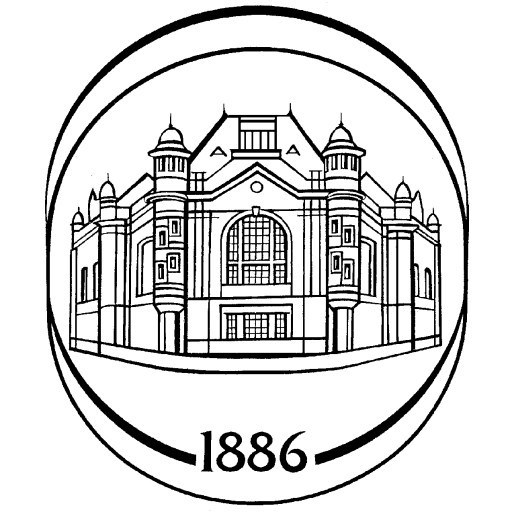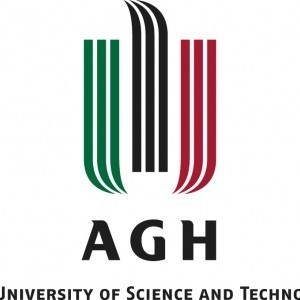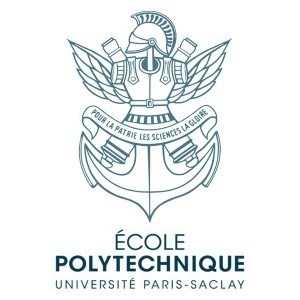Photos of university / #leti_official
Laser Measurement Technology is a cutting-edge engineering program offered at Saint Petersburg Electrotechnical University "LETI" that prepares students to develop, optimize, and implement advanced laser-based measurement systems across various industries. This multidisciplinary program integrates principles of physics, optics, electronics, and computer science to equip graduates with the theoretical knowledge and practical skills necessary for designing and maintaining high-precision laser measurement instruments. Throughout the course, students explore topics such as laser physics, optical systems, signal processing, automation, and control systems, enabling them to address complex challenges in fields like manufacturing, aerospace, environmental monitoring, and biomedical engineering. The curriculum emphasizes hands-on experience through laboratory work, project development, and internships with leading technology companies, fostering innovation and problem-solving abilities. Students learn to work with modern measurement tools, develop custom laser-based solutions, and ensure the accuracy and reliability of measurement data in real-world scenarios. The program also covers topics related to system calibration, error analysis, and safety standards associated with laser technologies. Upon graduation, students will be qualified to participate in research and development activities, contribute to technological advancements, and pursue careers as engineers, researchers, or specialists in laser measurement and optical systems. The program aligns with international standards, ensuring graduates are competitive in the global job market and capable of advancing the science and application of laser measurement technologies. Our graduates are well-prepared to meet the demands of industry and contribute to innovations that improve efficiency, accuracy, and quality across various sectors.
The Bachelor's program in Laser Measuring Technology at Saint Petersburg Electrotechnical University "LETI" is designed to prepare highly qualified specialists in the field of modern measurement systems and laser technologies. The curriculum combines fundamental engineering education with specialized courses that focus on the principles, design, and application of laser measurement instruments. Students will gain in-depth knowledge of laser physics, optical measurements, and the integration of laser systems into various industrial and research environments. Throughout the program, students explore topics such as laser optics, sensor design, signal processing, and calibration techniques, enabling them to develop innovative solutions for precise distance measurement, surface profiling, and industrial automation.
The program emphasizes practical skills alongside theoretical knowledge. Students engage in laboratory work, design projects, and internships that provide hands-on experience with state-of-the-art laser measurement equipment and software. They learn to configure, operate, and troubleshoot laser measurement devices, as well as to analyze measurement data accurately. Special attention is given to the safety aspects of working with laser systems and the ethical considerations related to measurement technologies. The curriculum also includes modules on the automation of measurement processes, integration of laser systems into control systems, and the use of laser measurements in quality control, robotics, and metrology.
Graduates of this program will be equipped with the competencies necessary for R&D activities, production, and maintenance of laser measurement systems across various industries such as manufacturing, aerospace, medical instrumentation, and environmental monitoring. They will possess the skills to innovate, improve existing measurement methods, and develop new laser-based solutions that meet modern technological demands. The program encourages participation in scientific research, supporting students to contribute to advancements in laser measurement technologies and their applications.
Upon completion, graduates receive a diploma of higher education, qualifying them for employment in engineering, research, and technical roles related to laser measurement technology. They are prepared to work in multidisciplinary teams, communicate effectively with stakeholders, and continue their professional development through advanced education and training. This program is ideal for students interested in the intersection of physics, engineering, and laser technology, aiming to become experts in one of the most cutting-edge areas of measurement science.
Admission to the Laser Measuring Technology program requires applicants to have completed secondary education with a strong focus on physics and mathematics. Prospective students must submit their school certificates demonstrating proficiency in these subjects, which are fundamental for understanding laser physics, optics, and measurement techniques. The university also considers the results of entrance examinations in mathematics and physics, designed to assess the applicant's analytical thinking, problem-solving skills, and foundational knowledge relevant to laser measurement technologies. In some cases, there may be additional assessments or interviews to evaluate the candidate's motivation, interest in the field, and potential for research and practical work in laser measurement systems. Candidates are expected to have basic technical skills, including familiarity with computer applications used for data analysis and measurement protocols. Prior knowledge of electronics, optics, or instrumentation can be advantageous but is not always mandatory. The program emphasizes interdisciplinary competence, combining physics, electrical engineering, and applied mathematics, so applicants should demonstrate a well-rounded scientific background. International students may need to provide additional documentation such as language proficiency certificates (e.g., TOEFL, IELTS) if their prior education was not in Russian. The university encourages applicants with innovative thinking, curiosity about technological advancements, and a desire to contribute to fields like industrial measurement, quality control, and scientific research involving laser measurement devices. Additionally, references or recommendations from teachers or professionals in related sectors can enhance an applicant’s chances of admission. Successful candidates will be selected based on a combination of academic performance, entrance examination results, and potential to succeed in the specialized field of laser measurement technology. The program aims to develop specialists equipped with comprehensive knowledge and practical skills to innovate in the development, calibration, and application of laser measuring instruments across various industries.
The Laser Measuring Technology program at Saint Petersburg Electrotechnical University "LETI" offers students comprehensive education in the field of precision measurement using laser-based systems. The programme is designed to equip students with both theoretical knowledge and practical skills necessary for professional activities in industries such as manufacturing, construction, aerospace, and research institutions. Education is delivered through a combination of lectures, laboratory work, and project-based learning, ensuring students gain hands-on experience with the latest laser measurement equipment and technologies. The curriculum covers core disciplines including optics, photonics, electronic instrumentation, signal processing, and computer-aided measurement systems, providing a solid foundation for understanding and developing advanced laser measurement solutions. Graduates of the programme are prepared for employment in roles such as design engineers, calibration specialists, R&D engineers, and technical consultants. The program also emphasizes innovation, digital technologies, and quality assurance, aligning with current industry standards. Tuition fees are determined annually and may vary based on government regulations, university policies, and whether the student is a domestic or international applicant. Funding opportunities include government scholarships, university grants, and industry partnerships, which can significantly offset education costs. International students may also access external scholarships and financial aid programs. The programme's arrangements for financing studies aim to provide accessible education and support students throughout their studies, facilitating their career development in laser measuring technology.
Laser Measurement Technology at Saint Petersburg Electrotechnical University “LETI” is a specialized program designed to prepare highly qualified specialists in the field of laser-based measurement systems and technologies. The program focuses on the theoretical foundations and practical applications of laser measurement methods, including distance measurement, shape and surface profiling, displacement and vibration analysis, and various other diagnostic and inspection techniques that utilize laser technology. Students gain a comprehensive understanding of laser physics, optoelectronics, and the design and operation of laser measurement instruments.
Throughout the course, students are introduced to advanced optoelectronic devices, including photodetectors, laser sources, and imaging systems, enabling them to develop and improve measurement devices based on laser technology. The curriculum combines fundamental physics with modern engineering practices, ensuring that graduates are capable of designing, implementing, and maintaining complex laser measurement systems used in industrial, scientific, and technological applications. Practical training is emphasized, with students engaging in laboratory work, research projects, and internships at industrial partners and research institutes, fostering hands-on skills and real-world experience.
The program also covers important aspects related to signal processing, data analysis, and automation, ensuring that graduates can develop comprehensive measurement solutions and interpret complex data obtained from laser instruments. As laser measurement technology is critical in fields like manufacturing quality control, aerospace, automotive testing, and precision engineering, the program prepares students for diverse career opportunities in these high-demand sectors. Graduates are equipped with the knowledge to pursue careers in research and development, system design, product testing, and consulting, contributing to innovation and technological advancement.
Saint Petersburg Electrotechnical University “LETI” has a history of combining rigorous scientific education with practical industry relevance. This program is designed to meet the needs of modern engineering practices, emphasizing innovation, precision, and reliability. The faculty involved has extensive experience in laser technologies, and the university maintains collaborations with leading industry players and research organizations, providing students with valuable networking opportunities. Overall, the Laser Measurement Technology program aims to produce experts capable of advancing laser measurement methods and contributing significantly to technological progress across multiple sectors.








